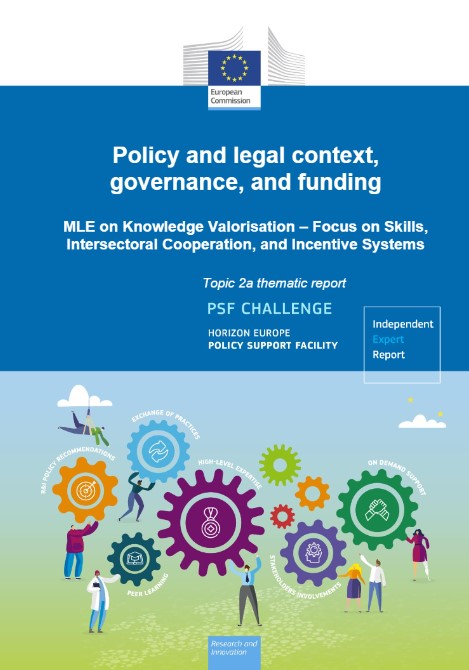
The Thematic Report focus on the lessons learned from discussions of the MLE on knowledge valorisation on policy and legal context, governance, and funding. The report highlights the critical importance of aligning a long-term strategic vision and goals with supporting tools for knowledge valorisation, including financial schemes, regulatory frameworks, and soft instruments.

The report focusses on the insights gained from the Topic 4 MLE meeting held in Helsinki, concentrating on multi-stakeholder networks and processes for knowledge valorisation. The report highlights the need for fostering multi-stakeholder networks to address regional, national, and European interests and discusses the important role of the public sector/authorities in building and maintaining those networks.
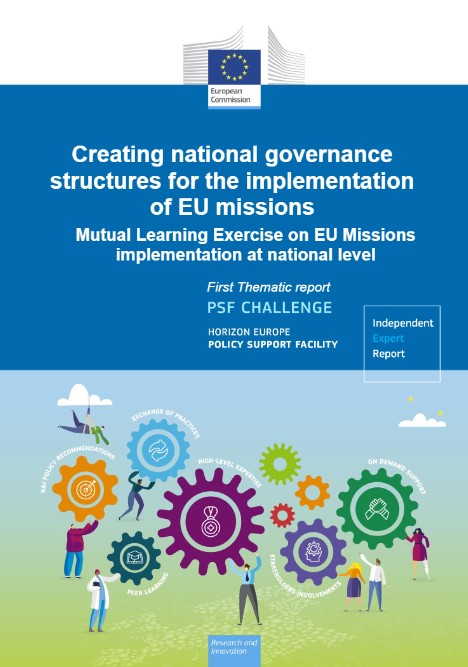
This report explores using multi-level governance (MLG) for implementing EU missions. It outlines the MLG concept, examines its application challenges in mission-focused policies using country examples. Additionally, it analyses a survey on mission governance in 18 countries and summarises discussions from the inaugural MLE meeting in Vienna on 28-29 September 2023.
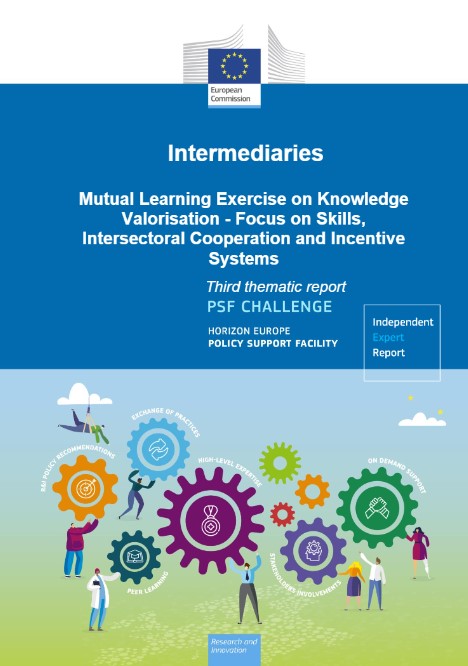
This report outlines knowledge valorisation intermediaries, explaining their role in open ecosystems and multi-actor perspectives. It explores the intermediary organisations as key players in knowledge valorisation, surveys existing intermediaries, describes new approaches and models used by both traditional and innovative intermediaries, and examines major policy implementation challenges.
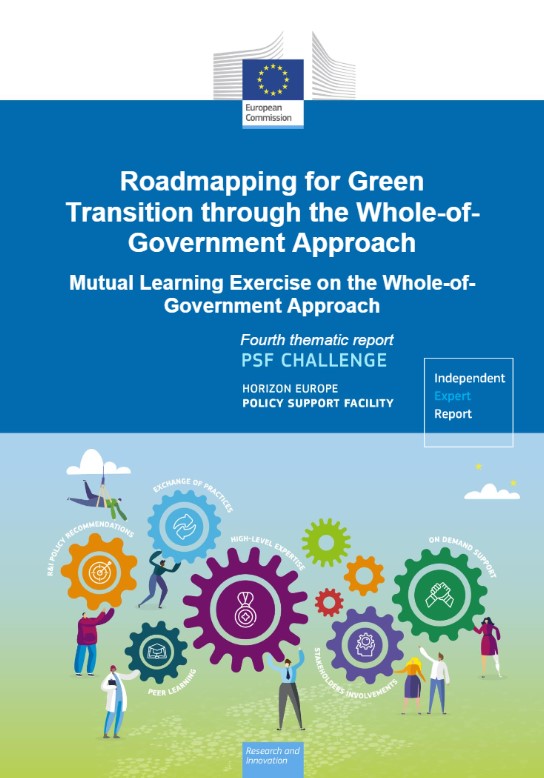
This report focuses on using the Whole-of-Government Approach to shape national Research and Innovation strategies for sustainable socio-economic systems. It sparks discussion on green transitions, industrial technology roadmaps, and the challenges of enabling radical structural changes amidst uncertainty. Additionally, it addresses orchestrating ecosystem stakeholders to turn visions into action.
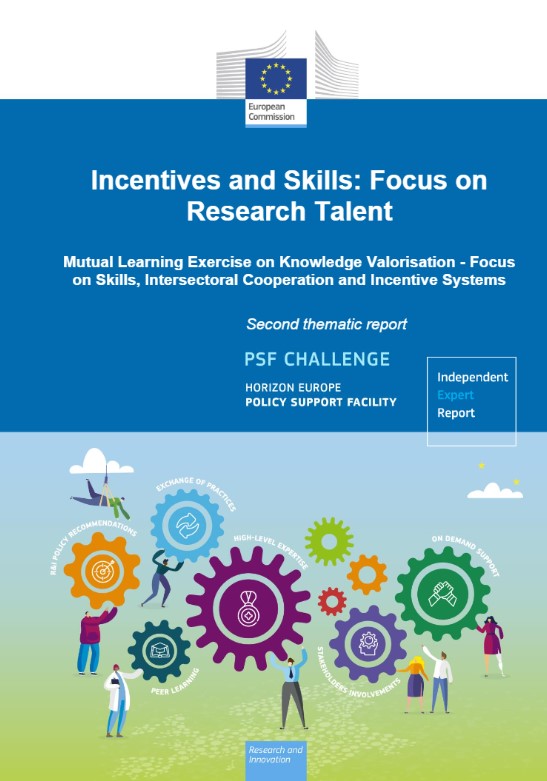
The Thematic report focuses on the lesson learned from the Topic 2b meeting in Vienna on research talents, capacity building and intersectoral mobility for knowledge valorisation. The report highlights the need for fostering intersectoral mobility to bolster innovation in Europe.
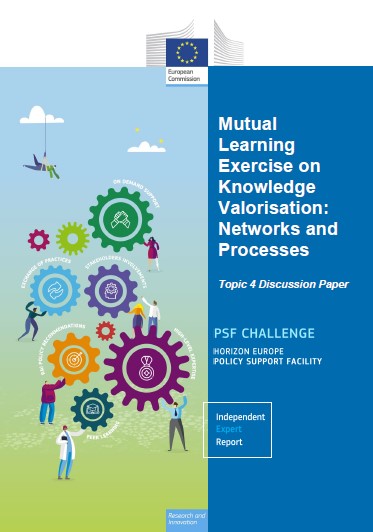
Knowledge networks connect people and organizations to share, create, and value knowledge. They can grow from local communities to national ecosystems.
This Discussion Paper explores how knowledge networks can create more disruptive innovation and bridge knowledge gaps. It also examines the processes and conditions that facilitate knowledge sharing and creation in networks.
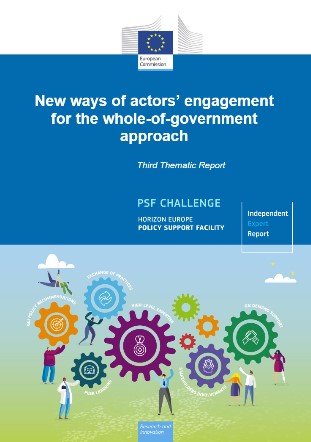
This third thematic report of the Mutual Learning Exercise on the Whole of Government Approach reflects on discussions and findings about the new ways of actor’s engagement for the whole-of-government approach in R&I policy. It focusses on four key themes: broadening stakeholder involvement in high-level national R&I councils, multi-level governance mechanisms, citizen and civil society participation in R&I policy, and innovative processes for collaborative problem-solving.
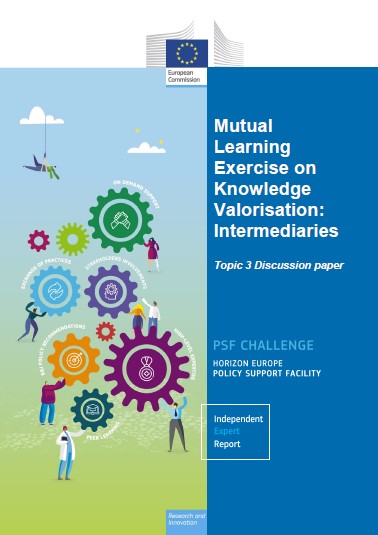
The Discussion Paper focuses on knowledge valorisation intermediaries. The document summarises the rationale behind the role given to knowledge valorisation intermediaries in an open ecosystem, maps and analyses the landscape of established intermediaries, identifies the main policy challenges, and characterises new approaches and models adopted by conventional and novel intermediaries.
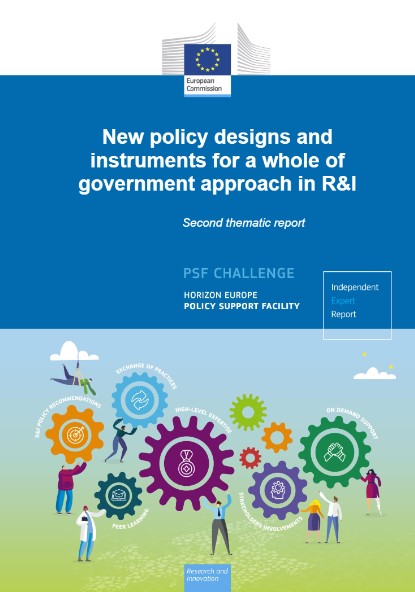
This report explores the whole of government approach (WGA) and its application to research and innovation (R&I) policy design, emphasizing collaboration and integration in policy-making. It highlights the significance of problem-oriented and transformative policy instruments in realizing the potential of WGA in R&I policies. The report underscores the need for a consistent policy mix to prevent duplication, overlap, and imbalances.
